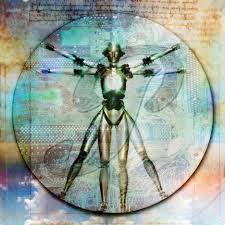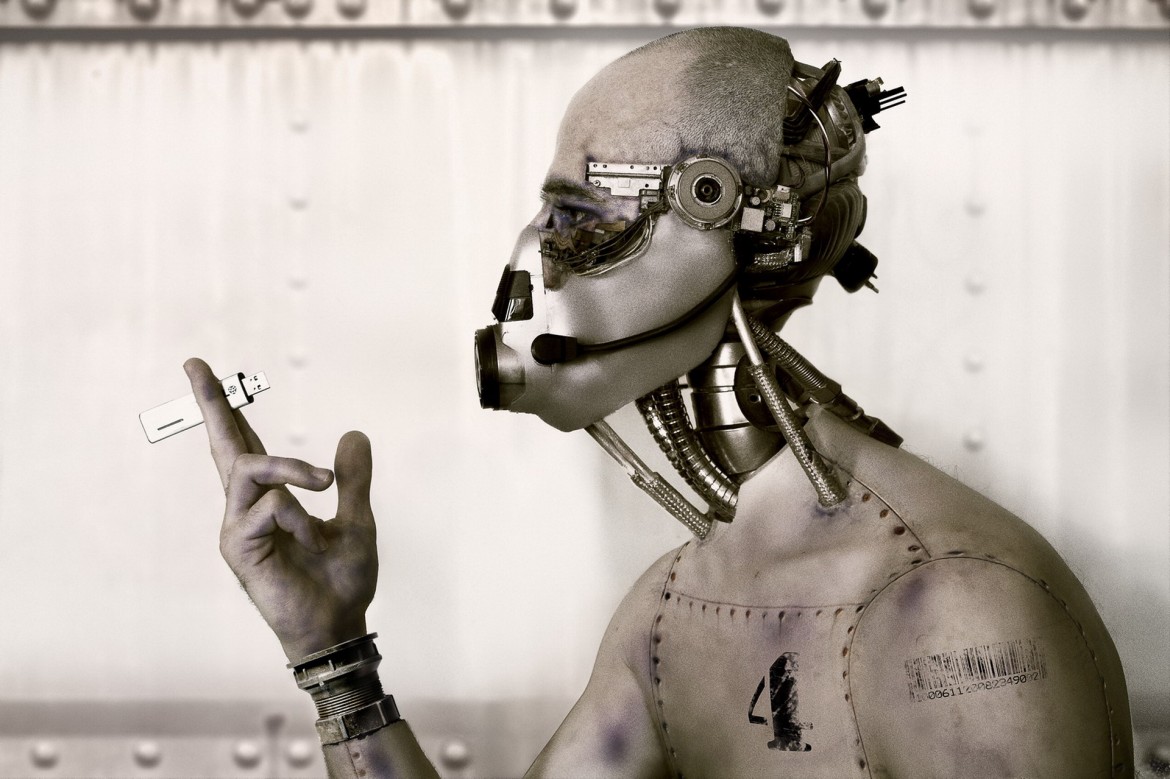Posted: Giugno 21st, 2014 | Author: agaragar | Filed under: 99%, au-delà, crisi sistemica, digital conflict, epistemes & società, Global, postcapitalismo cognitivo | 108 Comments »
Önder Özengi & Pelin Tan (LaborinArt): You wanted to speak about the European crisis, especially its effect on the Mediterranean, the Near East, and the Middle East. What does the collapse of social welfare mean for these territories and countries?
Franco “Bifo” Berardi (FBB): After May 25, we must be able to say that the “European experiment” is over. The impressive result that the National Front will have in the French elections is going to add the word “end” to this expression. The European Union was based on the alliance between France and Germany, after two centuries of war. Now the alliance is over. After incredible suffering and bloodshed, the French won WWI and WWII against the Germans. Why should they accept German domination now? This horrible result has been imposed by financial capitalism, and its politics is the prevailing sentiment of the French people. The majority of the French do not feel Europe to be their home. This is a geopolitical catastrophe and, more importantly, a social catastrophe.

[–>]
Posted: Maggio 23rd, 2014 | Author: agaragar | Filed under: 99%, au-delà, bio, comune, digital conflict, epistemes & società, Foucault, Marx oltre Marx, postcapitalismo cognitivo, Révolution | Commenti disabilitati su Legalità. Oltre il cretinismo e il romanticismo
Legalità. Oltre il cretinismo e il romanticismo
di UGO MATTEI e MICHELE SPANÒ

[Questo contributo è parte del volume Genealogie del presente. Lessico politico per tempi interessanti, a cura di Federico Zappino, Lorenzo Coccoli e Marco Tabacchini, Mimesis, Milano 2014]
Difficile, per non dire impossibile, affrontare la legalità come un concetto dotato di autonoma consistenza. E ciò non già per la ragione banale per cui tutti i concetti politico-giuridici sono “essentially contested”, ma per almeno due altri e più rilevanti motivi: il primo è che, almeno nella modernità, è stato impensabile trattare di legalità prescindendo dal suo concetto gemello: quello di legittimità; il secondo è quello che – considerandola in crisi permanente – impedisce di rivolgersi alla legalità altrimenti che nel modo della critica.
[–>]
Posted: Maggio 23rd, 2014 | Author: agaragar | Filed under: anthropos, au-delà, bio, digital conflict, epistemes & società, postcapitalismo cognitivo | Commenti disabilitati su Economie de l’attention
di Yves Citton

L’économie de l’attention
Posted: Aprile 16th, 2014 | Author: agaragar | Filed under: anthropos, au-delà, bio, comune, digital conflict, epistemes & società, hacking, Marx oltre Marx, post-filosofia, postoperaismo, Révolution | 7 Comments »
by Unemployed Negativity
This is the longer version of an old conference paper . It never quite became publishable; it is left here to the gnawing criticism of digital mice.

Materialism has always been the bastard stepson of philosophy. Its very position is paradoxical, if not impossible. It must use concepts and arguments to conceptualize and argue against the primacy of concepts and argument. This perennial problem is even worse today. If Marx was in some sense the most sophisticated materialist philosopher, elevating the material beyond the brute materiality of the body, to locate the material in the reality of production and the conflicted terrain of social relations, then one could argue that even this version of materialism is in jeopardy today. The economy, the last instance of materialist philosophy after Marx, can no longer be identified with the machines and noise of the factory, it has become digital, immaterial. What then remains of materialism when the economy has become ideal, determined more and more by the idealist category par excellence, speculation, and even labor has been declared immaterial, intersecting with beliefs and desires? At least the beginning of a response can be found in the seemingly paradoxical concept of “real abstraction.” This term, introduced by Marx, takes on a central importance in the work of Alfred Sohn-Rethel, where it is no longer a methodological necessity, but the cornerstone of a philosophy that seeks to understand the material basis of abstraction itself.
[–>]
Di Matteo Pasquinelli e Wietske Maas vedi: MANIFESTO DEL CAPITALISMO URBANO
Posted: Aprile 11th, 2014 | Author: agaragar | Filed under: anthropos, au-delà, bio, digital conflict, donnewomenfemmes, epistemes & società, post-filosofia, postcapitalismo cognitivo, posthumanism | Commenti disabilitati su Postumano – Oltre la gabbia del soggetto
di Alessandra Pigliaru
Postumano. Il femminismo ha sperimentato modelli politici da cui partire per contrastare la violenza del capitalismo. Sul piano teorico vanno assunte come irreversibili le mutazioni delle soggettività attivate dalla scienza. Un’intervista con la teorica femminista Rosi Braidotti, in Italia per presentare il suo nuovo libro «Il postumano»

[–>]
Posted: Marzo 23rd, 2014 | Author: agaragar | Filed under: anthropos, arts, au-delà, bio, digital conflict, epistemes & società, post-filosofia, posthumanism | 66 Comments »
by Mark Featherstone

I. Gadget Love
In the winter of 2013, I became aware of “Einstein’s Nightmare,” an Internet meme, a fragment of information, which reflects the horror of what I call in this article the “technological dystopia.” [1] The meme, titled “Einstein’s Worst Nightmare,” explains that “The Day That Albert Einstein Feared Has Arrived!” Below the caption, six images show people in various collective scenarios — “Having Coffee with Friends,” “A Day at the Beach,” “Cheering for your Team,” “On an Intimate Date,” “Enjoying the Sights,” “Having Dinner” — where a communal or social event is torn by technological mediation. The people in each image are distracted. They grasp their gadgets, gaze at screens, lose themselves in mediation. They are immersed in their iPhones, smart phones, and other devices, and disregard the presence of their friends and family members. At the bottom of the meme is a quotation from Einstein. Here we read the details of Einstein’s Nightmare: “I fear the day that technology will surpass our human interaction. The world will have a generation of idiots.” We understand the problem. Perhaps the meme is inspired by McLuhan, Baudrillard, or both? According to the meme, we may argue that the technological medium of human communication has started to work against its original purpose — the creation of social relations, where the term “social” implies a relation defined by a phenomenological, embodied, thickness, a quality necessary for durable sociality. But this is not the relation that predominates in Einstein’s Nightmare. In the nightmare, we gaze at screens and communicate with absent, virtual bodies, yet we ignore the real people in our immediate vicinity. The people in the images are McLuhan’s gadget lovers who love their phones because they insulate them from real social interaction. As McLuhan explained, there is simply too much happening in our hyper-media society to take everything in, so we “self-amputate” ourselves in our gadgets. [2] On the other hand, and in order to balance our retreat into isolation, we fall into Baudrillard’s ecstasy of communication, where we become addicted to the very act of communication itself. [3] Meaning is irrelevant. Speak, write, communicate for the sake of it. As John O’Neill noted long before the Internet — let alone the iPhone — took off, “televideo ergo sum” — I am on screen, therefore I am. [4] I exist, and I resist my self-imposed retreat from the world, because I communicate at a distance. According to the meme, this is Einstein’s technological dystopia.
[–>]
Posted: Marzo 11th, 2014 | Author: agaragar | Filed under: 99%, anthropos, Archivio, arts, au-delà, bio, comune, comunismo, digital conflict, epistemes & società, Révolution | 54 Comments »
di Danilo Mariscalco
Qui la Premessa
Qui il primo capitolo

Una recensione: La luce del futuro che viene dal passato
di GIORGIO MARTINICO
Protagonista è il Settantasette. Ad indagare quel movimento, non i suoi protagonisti, non il racconto «ufficiale» o il «discorso sugli anni di piombo» è il volume Dai laboratori alle masse. Pratiche artistiche e comunicative nel movimento del ’77 (Ombre Corte, pp. 159), scritto da Danilo Mariscalco, dottore di ricerca presso l’Università di Palermo. Un libro che, come suggerisce il titolo, ha l’ambizione di arricchire il dibattito politico e storiografico su alcuni aspetti (le pratiche artistico-comunicative) relative a quella straordinaria stagione di conflitto e, anche, di frenetica produzione «culturale»; allo stesso tempo il volume è il tentativo di «arricchire la cassetta degli attrezzi utilizzata dai soggetti impegnati nella trasformazione, dal carattere teorico-pratico inscindibile, del reale».
[–>]
Posted: Marzo 10th, 2014 | Author: agaragar | Filed under: anthropos, arts, au-delà, bio, digital conflict, epistemes & società, kunst, post-filosofia, posthumanism | Commenti disabilitati su Vectores de disolución Sobre la posibilidad de acelerar el capitalismo en vista de generar su colapso

“Es más fácil imaginar el fin del mundo que el fin del capitalismo”. La famosa frase de Jameson, esgrimida a menudo por Žižek y sus acólitos, no ha dejado de resonar funestamente en el imaginario progresista de nuestro tiempo, pues da cuenta de una verdadera sensación general de estancamiento a nivel de la elaboración teórica de posibles futuros alternativos al sistema capitalista. En efecto, la superación del capitalismo suena cada vez más fantasiosa, incluso a pesar de un contexto de crisis económica global. Pero, ¿y si para generar un cambio radical no fuera necesario detener la maquinaria?
[–>]
Posted: Febbraio 22nd, 2014 | Author: agaragar | Filed under: anthropos, bio, digital conflict, epistemes & società, Foucault, Révolution, vita quotidiana | Commenti disabilitati su Una cittadinanza ridotta a dati biometrici
di Giorgio Agamben

Come l’ossessione della sicurezza fa mutare la democrazia
La sicurezza figura tra quelle parole «sgabuzzino» alle quali non si presta più alcuna attenzione tanto sono familiari. Eretta a priorità politica da una quarantina di anni, questa nuova denominazione del mantenimento dell’ordine cambia spesso di pretesto (la sovversione politica, il «terrorismo») ma conserva la sua mira: governare le popolazioni. Per comprendere ed eludere la ragione securitaria, bisogna coglierne l’origine e risalire al XVIII secolo…
[–>]
Posted: Febbraio 18th, 2014 | Author: agaragar | Filed under: anthropos, au-delà, bio, digital conflict, epistemes & società, post-filosofia, posthumanism | Commenti disabilitati su Rosi Braidotti e la metamorfosi del postumano
di Benedetto Vecchi

Contrappunti. La manipolazione del Dna, l’innesto di protesi meccaniche e il potenziamento delle facoltà cognitive sono fattori che hanno cancellato il confine tra natura e cultura. E che spingono a elaborare una etica pubblica del postumano
[–>]










